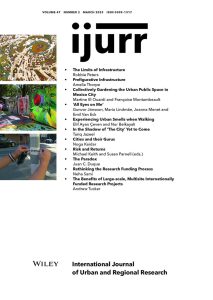Studies of marketplaces in the global North have often conceptualized markets as important public spaces of social encounter and conviviality where visitors, regardless of race, age, class or gender, feel they have an equal right to be. Yet comparatively little has been written about how inclusive European marketplaces are for the traders who (want to) work there. In this article we argue that the common conception of marketplaces as accessible to everyone, and as vehicles of socioeconomic mobility, is oversimplistic and romanticized. We draw on empirical data from marketplaces in four European countries to focus on the more or less informal ways in which markets are regulated by managers and traders themselves, and on the exclusionary and inclusionary effects of this process that may ultimately determine traders’ access to and success in these markets. This article not only challenges dominant conceptions of marketplaces as accessible and inclusive, but also addresses prevalent stereotypes about economic practices in the global North and assumptions about the ways in which these differ from practices in the global South.
Details
Written by:
Gunvor Jónsson, Maria Lindmäe, Joanna Menet & Emil Van Eck
Digital Object Identifier (DOI)
10.1111/1468-2427.13158
About DOI

